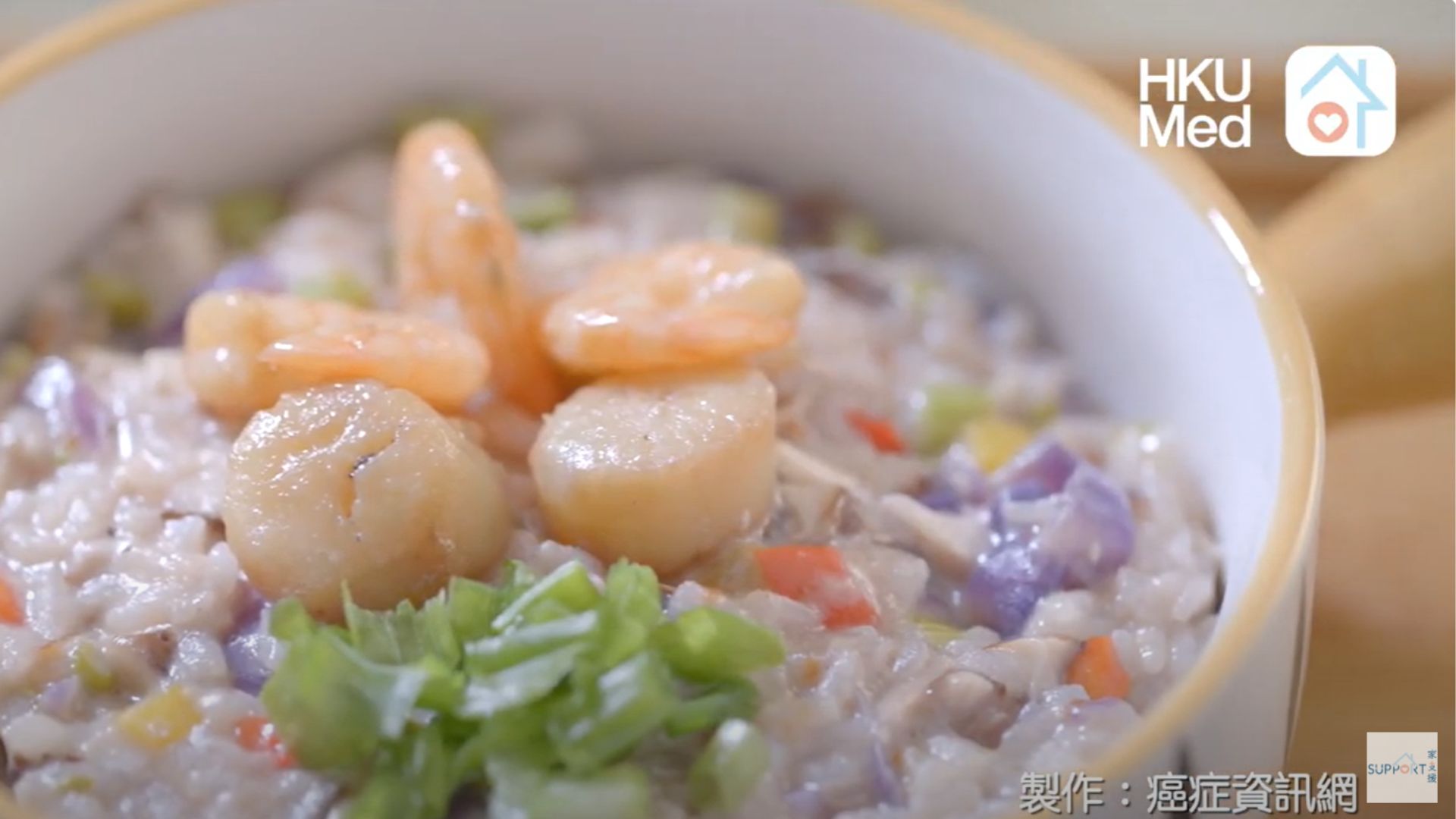Colourful vegetables (i.e., asparagus, purple cabbage, onions, fresh shiitake) are rich in dietary fiber, vitamins, minerals and polyphenolic compounds (such as vitamin C, β-carotene and quercetin). Polyphenolic compounds may have anti-cancer effects. A long-term high-fiber diet may reduce the risk of colorectal cancer. #
Low-saturated fat recipe: Diet low in saturated fat can reduce risk of colon cancer recurrence by lowering cholesterol and bile production in the body.
Easy to swallow and digest: Vegetables are finely chopped. Fluid from milk further softens the rice and makes risotto easy to swallow.
Increased dietary fiber intake:
- Dietary fiber is a type of prebiotic that feeds good intestinal bacteria. Promotes SCFA production via gut bacteria fermentation. Short-chain fatty acids (SCFA) produced reduces intestinal pH. Lower colon pH is associated with lower colon cancer risk and reduced formation of carcinogens (in particular by butyrate) by reduced level of pro-carcinogenic enzymes that converts bile acid to secondary bile acids that are carcinogenic
- Make the intestinal tract more suitable for the survival of good bacteria (including Lactobacillus), maintain good intestinal microbiome balance.
- Dietary fiber promotes intestinal peristalsis, bowel movement thus fecal volume, which reduces the time for fecal mutagen/toxin time to interact with colon mucosa, which may reduce gene mutations of intestinal mucosal cell thereby colon cancer.
- Water-soluble fibre reduces cholesterol and bile production and secretion from the body and reduces the formation of carcinogens (secondary bile acids) in the intestines.
#: High fibre diet may not be suitable for patients shortly after surgery and for those with acute inflammatory bowel motions.



